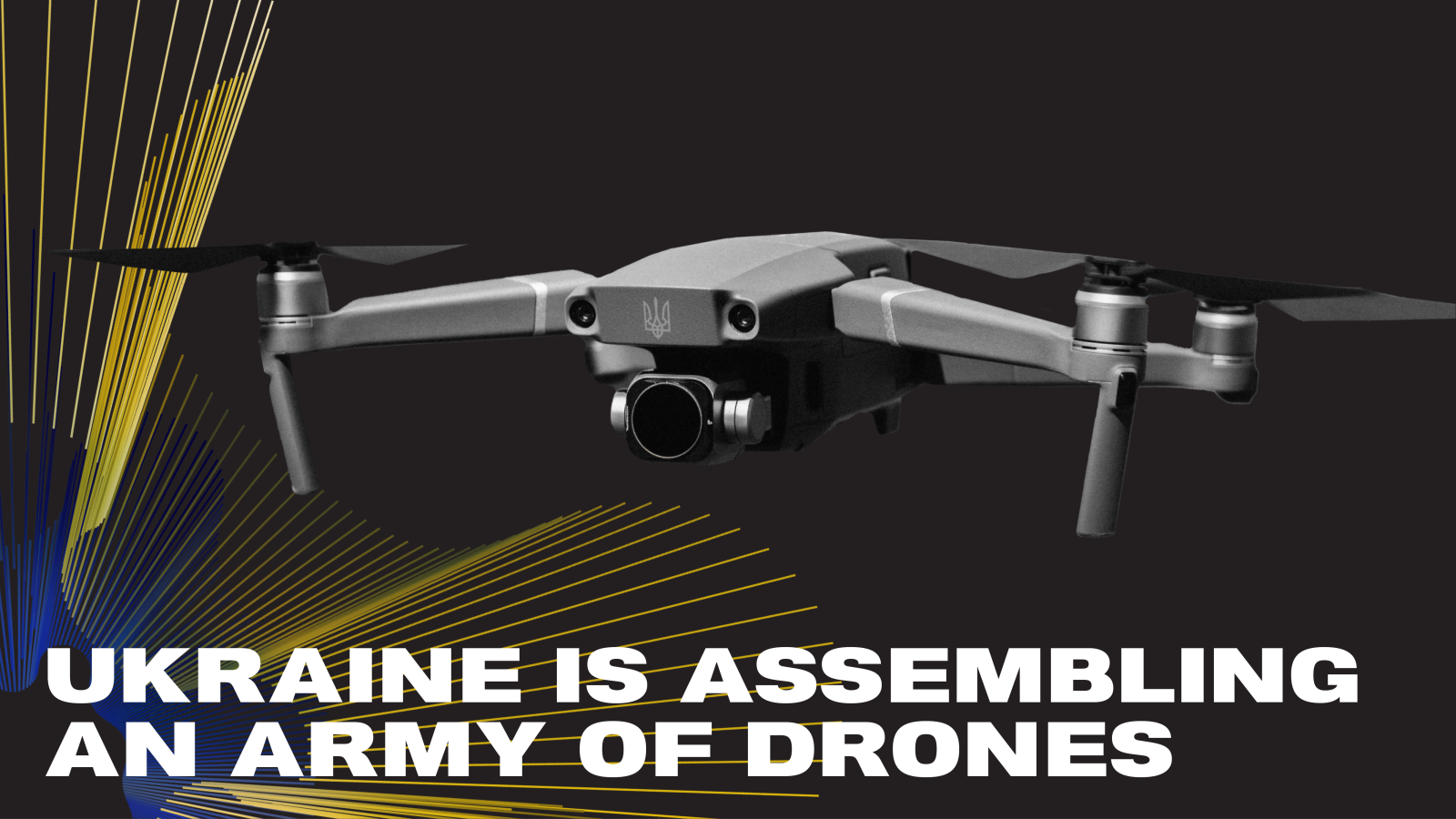
A group of brainy volunteers in Kyiv producing drones for deployment by Ukraine’s army against Russian invaders have added trashed e-cigarette batteries to their mix of DYI materials being used in support the nation’s defense.
The group is led by engineering PhD candidate Maksym Sheremet, who set up the multi-functional UAV hub not long after the invasion began. Based in the facilities of the Ukrainian Women’s Veteran Movement, the lab gets input solicited directly from front-line units to repair and reconfigure consumer drones, and build their own models from scratch, tailored to the ways they’re to be used against Russian forces. The latest innovation in that entirely volunteer, donation-fueled operation is collecting discarded e-cigarettes, whose lithium polymer batteries are recharged and integrated to power release systems mounted on the craft.
In addition to its broader mission providing complete UAV platforms for deployment by defense forces, the production of payload release devices has particularly taken off amid increasingly higher demand. The units are manufactured by 3D printers, and are used by Ukraine troops to drop anything from medical supplies for wounded comrades to a variety of munitions on Russian enemies.
Read: Ukraine drone drops grenade on Russian doing ‘number two’
Sheremet says demand is such that about 30 of his 60 volunteers now focus on creating the release devices, which cost about $30 each to make. But while he’s been successful increasing producing rates to about 1,000 per month, Sheremet said the war’s disruption of imports has caused the prices of lithium batteries used to skyrocket in recent weeks.
To work around that, he got the idea of placing designated e-cigarettes drop boxes around the Kyiv Polytechnic Institute where he teaches, and recovering their internal rechargeable batteries for free.
“Lithium batteries used to cost $1 each but went up five times in price, adding significantly to our costs,” he said in a recent article in The Independent. “So, we started dropping power systems from the batteries in disposable e-cigarettes. It’s free, easy to reuse, and environmentally friendly because we are recycling.”
The collection and reuse of the e-cigarette batteries was a great idea just waiting for an external catalyst to be discovered.
Read: War in Ukraine is sapping Russia’s supply of commercial drones
Sheremet says vaping manufacturers don’t build USB ports into their products despite internal lithium cells being entirely rechargeable, leading most customers to junk them once they’re flat. But by creating that charging interface on drone release devices, his team can limit costs of providing that reusable tech to Ukraine troops, and aid their effort to fight Russian forces.
“In the last 20 days we’ve made 100 drone dropping systems using e-cigarette batteries, and have another 100 in progress,” he told the UK daily. “We have 2,000 orders in the pipeline.”
In addition to individual initiatives like those of Sheremet’s volunteer lab, Ukraine military officials are now mounting an effort to assemble an “Army of Drones” against Russian soldiers with a new fundraising campaign. Cash contributions from around the world are being sought through the United24 program site, or with direct donations of purchased drones to The Help Ukraine Center in Poland.
FTC: We use income earning auto affiliate links. More.

Comments